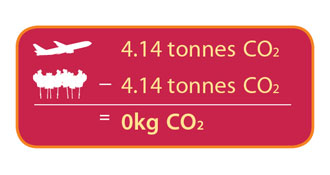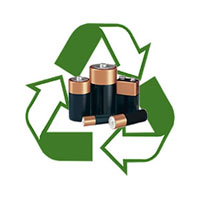|

|
Make Your Travel Carbon Neutral
Visiting tropical areas is a wonderful way to relax and get away from it all. Unfortunately, travel and tourism are often environmentally destructive, particularly with regard to transportation and its related climate change impacts.
Transportation, both on air and ground, is one of the largest contributors of greenhouse gas emissions adding to climate change. For the traveler, simple choices can have a lasting impact on the planet. Spend your dollars with travel businesses that are interested in protecting the beautiful destinations we all love to visit.
- Air Travel - Aviation is now the fastest growing contributor to greenhouse gases and it's an unfortunate truth that by flying to the destinations we love so much, we're actively contributing to climate change. Not only do planes release greenhouse gases, they also release it in the delicate upper atmosphere where its impact is far greater.
By offsetting the emissions from your flight you can fly in the knowledge that you have greatly reduced the impact of your holiday. An average American, who takes one or two trips abroad, emits 19,841 pounds of carbon a year. If everyone in the world emitted this much carbon, we would need 2 1/2 planets to support us all. Please offset your flights whenever possible.

- Ground Travel - Use the hotel van instead of renting a car. Use the bus for an interesting local cultural experience. Share taxis. Less pollution, and you can leave the driving to others.
 Hotels - Hotels which have an environmental agenda deserve your patronization. Look for hotels that are certified green and have written procedures for environmental impact and cultural policies. Book your guestrooms and meeting rooms with these hotels and let management know why you've chosen them. Hotels - Hotels which have an environmental agenda deserve your patronization. Look for hotels that are certified green and have written procedures for environmental impact and cultural policies. Book your guestrooms and meeting rooms with these hotels and let management know why you've chosen them.
- Restaurants - Choose restaurants that offer locally grown produce and serve sustainably harvested seafood. Check out Cayman Sea Sense for a list of restaurants that have made the committment to serve only seafood that has been harvested in a sustainable way.
- Buy local products and services. Choosing to support locally-owned businesses, community tour operators, and artisans means that you’ll have a one-of-a-kind experience and your money will go directly to the community. Before purchasing goods, ask about their origin. Avoid buying products made from threatened natural resources.
- Tread lightly. The Cayman Islands are proud of their beautiful but fragile eco-systems. Do your part to keep them that way by following designated trails, respecting caretakers, and not removing biological treasures.
 Be a considerate guest. Reduce, reuse, and recycle. Even though you are just visiting and not paying the utility bill, disposing of your garbage properly and minimizing your consumption of water and energy will benefit the Cayman Islands overall. Remember that waste disposal on small islands is more challenging than it is at home. Please bring any old batteries or plastic items back home for recycling whenever possible. If you take home leftovers from restaurant meals, ask for a square of aluminum foil or waxpaper instead of a foam container which takes up valuable landfill space and never biodegrades. Be a considerate guest. Reduce, reuse, and recycle. Even though you are just visiting and not paying the utility bill, disposing of your garbage properly and minimizing your consumption of water and energy will benefit the Cayman Islands overall. Remember that waste disposal on small islands is more challenging than it is at home. Please bring any old batteries or plastic items back home for recycling whenever possible. If you take home leftovers from restaurant meals, ask for a square of aluminum foil or waxpaper instead of a foam container which takes up valuable landfill space and never biodegrades.
 Travel light - While books are great, a way to lighten your luggage and your carbon footprint is to carry e-books. So load up your iPad or gadget of choice with electronic travel guides or novels. Travel light - While books are great, a way to lighten your luggage and your carbon footprint is to carry e-books. So load up your iPad or gadget of choice with electronic travel guides or novels.
- Honor protected areas. When visiting protected areas learn and follow all advisories, rules, and regulations. Remember the fees you pay to use these areas support local efforts to conserve them. Give back. Help to preserve the Cayman Islands for generations to come by making a donation to programs that give back and benefit the local community.
|
| |
Best Practices When Diving
In the water, coral-friendly divers:
- Avoid all contact with corals and other marine life
- Never chase or ride marine animal
- Take nothing living or dead out of the sea, except recent garbage
-
 Maintain good buoyancy contro Maintain good buoyancy contro
- Practice good finning technique and body control
- Ensure all equipment is well secured so that it cannot drag or snag on corals
- Only handle, manipulate, or feed marine life under expert guidance, never just to take photographs
- Avoid using gloves and kneepads in coral reef environments
Out of the water, coral-friendly divers:
- Encourage and support the use of dive moorings
- Avoid buying souvenirs that include coral, turtle, or other marine life
- Learn all they can about coral reefs and the fish and marine creatures of the reef
- Take care not to litter, especially aboard dive boats
- Always pay protected area fees (even if voluntary)
- Strictly obey all local dive rules, regulations, and customs
|
| |

Copyright © 2015 National Trust for the Cayman Islands. All Rights Reserved.
|
|
|